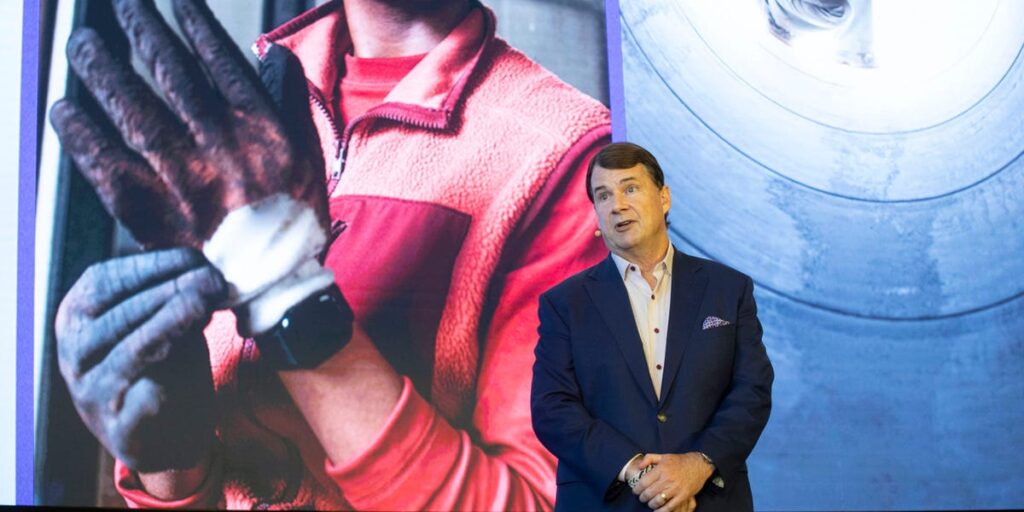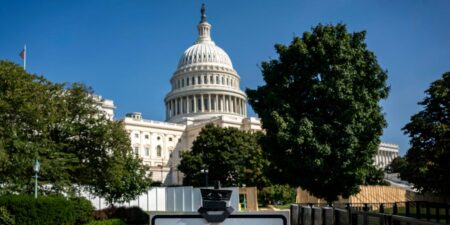Artificial intelligence’s impact so far has largely been in the office, but Ford CEO Jim Farley says changes are coming for the service bay, too.
Farley said Tuesday that he expects the disruption to blue-collar jobs to be a mix of “negatives and positives” and that it ultimately depends on how companies manage the shift.
One example: “If you’re repairing a Super Duty,” he said, referring to one of Ford’s pro-grade pickup trucks, “augmented reality AI is a game changer. Just ask my team, they’ll tell you. We need to use AI to make those repairs much simpler for people.”
Farley said diesel technician roles can pay more than $100,000 a year and require at least five years of training.
Farley’s comments came as the automaker convened a summit of CEOs in Detroit to address the widespread shortage of labor in the skilled trades in the US. Automotive trade group Tech Force estimates the US needs more than 100,000 new technician jobs a year to satisfy new demand and replace workers leaving the industry — a figure far higher than the number of people currently preparing for careers in the field.
Farley also said automation and AI will likely cause jobs to disappear across all sectors of the economy, echoing Walmart CEO Doug McMillon’s comments last week.
“It’s very clear that AI is going to change literally every job,” McMillon said at a company workforce event at Walmart’s headquarters in Arkansas, The Wall Street Journal reported.
McMillon and other Walmart executives have said repeatedly that automation would enable the company to grow its sales more quickly on a relatively flat head count.
Farley also said tech companies have an opportunity to help bridge the blue-collar gap.
“When I look at the AI solutions that get pitched to Ford, they’re all about white collar efficiency,” he said. “Very few AI companies come to us and say, ‘We want to dramatically help your efficiency repairing cars or your factory workers.'”
Most of the tech being introduced is intended to eliminate jobs, he said. “Right now, I don’t see a huge focus in the technology sector, on the essential economy, and AI as a tool.”
Read the full article here
















